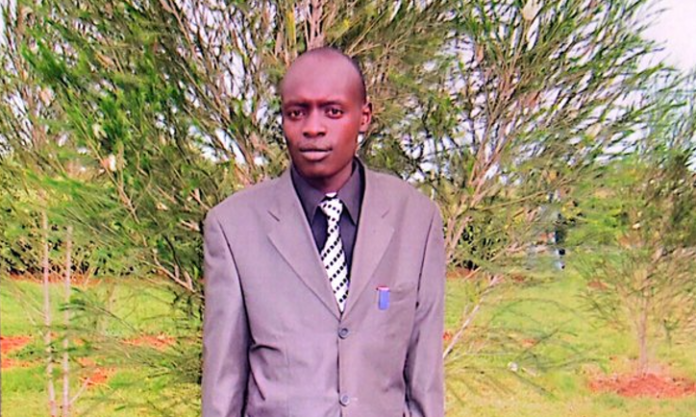Nandi Senator Samson Cherargei recently gave Kenyans a glimpse into his past by sharing a throwback photo from his days at Moi University.
The image, captioned “Tbt 2008, Supreme coat,” highlights the youthful leader’s journey before venturing into politics.
Cherargei, who became a household name after clinching the Nandi Senate seat in 2017 at the age of 28, began his public service journey as a student activist and legal advocate.
The senator’s political roots date back to 2013 when he actively participated in activism alongside then-Nandi Senator Stephen Sang. The duo was vocal in criticizing the county’s first governor, Cleophas Lagat, over governance issues.
Born and raised in Nandi County, Cherargei completed his secondary education at Kapsabet Boys High School in 2006. He later pursued a law degree at Moi University, graduating in 2011, and earned his post-graduate diploma from the Kenya School of Law in 2016.
In 2017, Cherargei made history by becoming one of the youngest elected senators in Kenya, succeeding Sang, who transitioned to the governor’s office.
Collaboration and Rivalry with Governor Sang

Cherargei and Governor Sang share a history of youthful leadership in Nandi County. Sang first made headlines in 2013 as the youngest senator at 28, later becoming Kenya’s youngest governor at 32 after defeating veteran politician Henry Kosgey.
Both leaders were re-elected in 2022 but have occasionally clashed. Cherargei has criticized the governor’s management, while Sang has dismissed the senator’s remarks as mere rhetoric.
Controversial Term-Limit Extension Bill
Cherargei recently garnered national attention for proposing a bill to extend the term limits of all elected leaders, including Members of County Assemblies (MCAs) and the President, by two years.
He argued that the current five-year term was insufficient for leaders to deliver meaningful change, citing challenges such as extended onboarding periods and early campaign pressures in the final year.
The proposal, however, faced widespread public opposition. Over 90% of Kenyans rejected the bill during public participation exercises, forcing the Senate to shelve it.
The overwhelming response, including over 200,000 emails sent to the Senate, temporarily crashed its mail system. “Thank you for the overwhelming response to the Constitution of Kenya (Amendment) (No. 2) Bill, 2024. Due to high volumes of submissions, our email system has temporarily experienced issues,” the Senate stated in October 2024.




![SHA Suspends Dozens of Health Facilities Over Alleged Fraud [LIST]](https://citymirror.ke/wp-content/uploads/2024/12/image-14-218x150.png)


